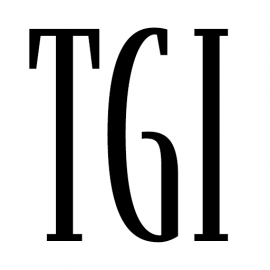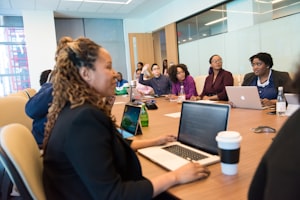In the quest for a thriving workplace, understanding the dynamics that foster collaboration and growth is as crucial as identifying those that hinder it. Criticism, Defensiveness, Contempt, and Stonewalling are dynamics that hinder team collaboration and growth. Organization and Relationship Systems Coaching (ORSC) refers to the behaviors as “Team Toxins,” which are based on the Gottman Institute's "Four Horsemen of the Apocalypse" concept. This post explores its relevance in professional settings, highlighting strategies to navigate and neutralize these behaviors for a healthier work environment.
Addressing these behaviors head-on is not merely about preventing conflict; it's about laying the foundation for an inclusive culture where every team member feels valued, understood, and empowered to contribute their best. This is the cornerstone upon which innovative, resilient, and harmonious work environments are built. By tackling these toxins, we open the door to cultivating a workplace where inclusion, belonging, and well-being principles are celebrated as ideals and actively practiced and woven into daily interactions. Read on to explore each Team Toxin and share actionable insights for fostering a collaborative, inclusive, and vibrant workplace.
Transforming Team Toxins into Pathways for Growth
Transforming team dynamics involves recognizing and addressing challenges with compassionate and constructive strategies. This approach fosters an environment of growth, collaboration, and resilience. Below each description of the team toxin, we list practices that pave the way for a workplace where collaboration thrives on respect, openness, and mutual appreciation.
- Transforming Criticism into Constructive Engagement: Criticism, especially when it feels personal, can diminish trust and openness, which are vital for team synergy. Transitioning to specific, actionable feedback fosters a culture of support and mutual respect. To cultivate this environment:
- Initiate a Culture of Appreciation: Begin meetings with acknowledgments of individual contributions. This positive foundation makes constructive feedback more acceptable and effective.
- Separate the Behavior from the Person: Encourage feedback focusing on tasks or behaviors rather than personal attributes. For instance, suggest improvements by saying, "Let's explore how we can enhance the accuracy of this report together," promoting a collaborative and solution-focused mindset.
- Overcoming Defensiveness with Vulnerability and Openness: Defensiveness, while a natural reaction, can obstruct productive dialogue and problem-solving. Creating a culture that views feedback as an opportunity for growth rather than criticism encourages open, productive dialogue. Strategies include:
- Encourage Sharing of Mistakes: Facilitate sessions where team members share mistakes and learning outcomes, demonstrating that mistakes are growth opportunities, not personal shortcomings.
- Develop Active Listening: Invest in developing listening skills within the team to ensure members feel heard and valued, enhancing the team's overall communication and problem-solving abilities.
- Addressing Contempt with Empathy and Respect: Contempt, manifesting as sarcasm or dismissiveness, undermines team cohesion. Fostering an environment of respect and appreciation for diverse perspectives is essential. Action steps include:
- Implement Restorative Engagement Practices: Foster a framework that emphasizes open dialogue, education on respect and cultural sensitivity, and the use of restorative practices to address and heal instances of disrespect, ensuring multiple supportive channels for safely voicing concerns.
- Promote Empathy and Role Understanding: Engage the team in exercises that enhance understanding of each other's roles, challenges, and contributions, enriching empathy and mutual respect.
- Breaking Down Stonewalling with Engagement and Dialogue: Stonewalling, or withdrawing from communication, obstructs team collaboration. Encouraging engagement and ensuring equitable participation can dismantle barriers to effective teamwork. Practices to enhance participation:
- Ensure Equitable Voice: Integrate practices like round-robin check-ins at meetings to allow everyone to share their thoughts and concerns, promoting a culture of inclusivity and engagement.
- Equip with Conflict Resolution Tools: Provide training or workshops on constructive conflict engagement, empowering team members to navigate and resolve disputes effectively.
Transforming team dynamics from toxic to collaborative requires recognizing the issues and committing to sustained change and growth. Understanding and addressing team toxins will foster a culture of open communication, mutual respect, and continuous improvement. This effort benefits the organizational climate and contributes to each team member's personal and professional development.
Further Exploration









